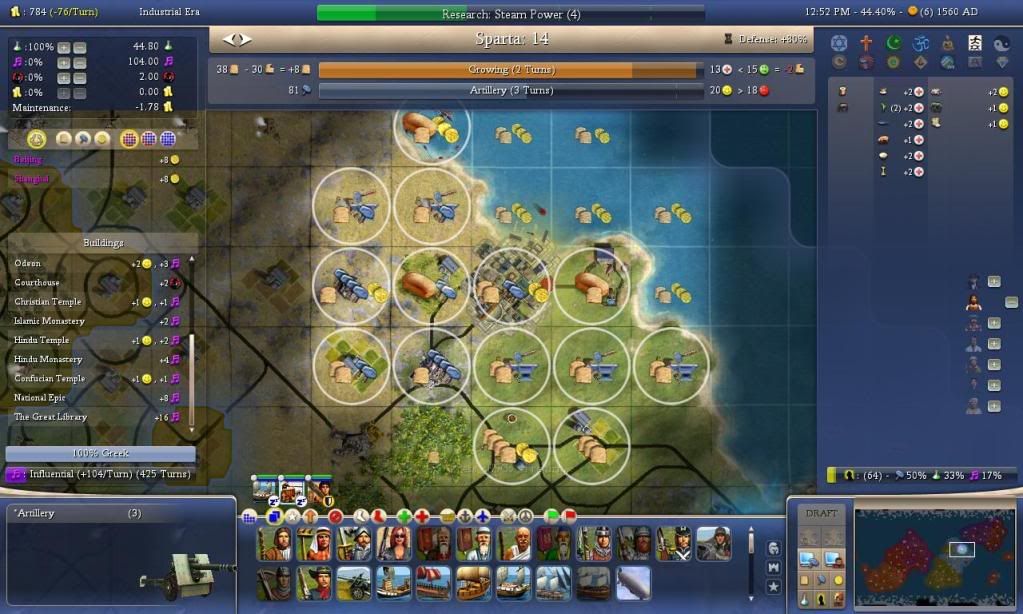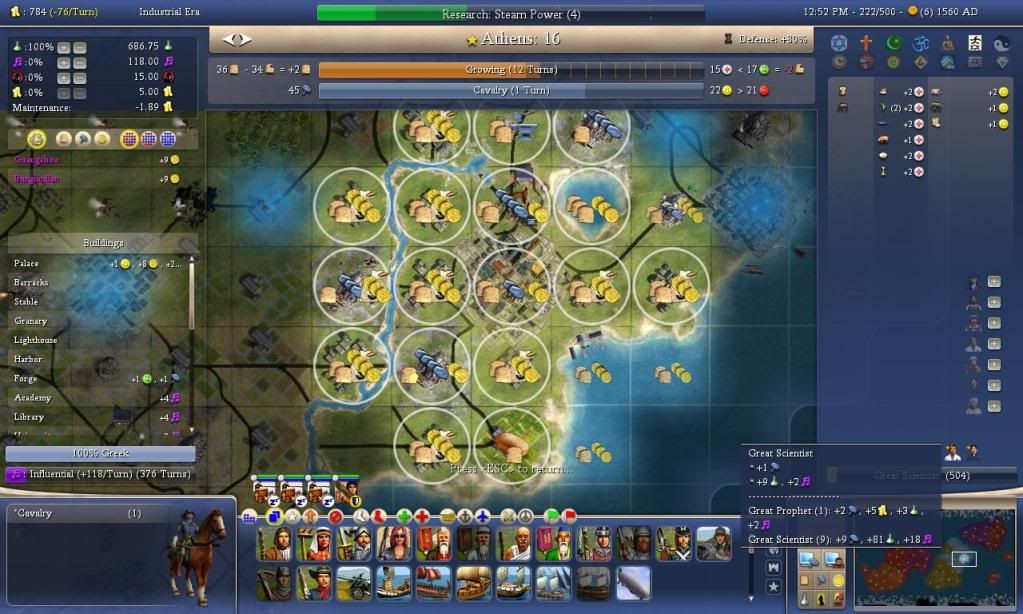yanner39
Emperor
I'm starting to have a very good grasp on city specialization (you realize how huge this concept is when you dominate at Noble level  ). I am sorely lacking when it comes to a Great Person Farm. I could not locate a specific thread that deals with this.
). I am sorely lacking when it comes to a Great Person Farm. I could not locate a specific thread that deals with this.
As I understand it, if I can settle a city near 3 food resources or 2 food resources and farm a couple more, I could run specialists, which will then generate GPPs.
My main question is how I set it up (assuming the Caste System isn't available yet)? This is what I would do:
1. Improve my food resources and work them.
2. If needed, farm a few tiles.
3. Research the necessary techs to unlock specialists spots.
Here is where I am unclear. Say I research metal castings, do I work my specialist engineer right away? Same goes with the other techs.
When do I substitute working a tile for a specialist? Does it depend on the yield of the tile vs. what the specialist will yield, or am I not concern because the end goal is to generate GPP to generate GPs anyways?
Also, Wonders are great in GP Farms. How to I build wonders if I am busy working food resources instead of mines?
Any tips would be great.
 ). I am sorely lacking when it comes to a Great Person Farm. I could not locate a specific thread that deals with this.
). I am sorely lacking when it comes to a Great Person Farm. I could not locate a specific thread that deals with this. As I understand it, if I can settle a city near 3 food resources or 2 food resources and farm a couple more, I could run specialists, which will then generate GPPs.
My main question is how I set it up (assuming the Caste System isn't available yet)? This is what I would do:
1. Improve my food resources and work them.
2. If needed, farm a few tiles.
3. Research the necessary techs to unlock specialists spots.
Here is where I am unclear. Say I research metal castings, do I work my specialist engineer right away? Same goes with the other techs.
When do I substitute working a tile for a specialist? Does it depend on the yield of the tile vs. what the specialist will yield, or am I not concern because the end goal is to generate GPP to generate GPs anyways?
Also, Wonders are great in GP Farms. How to I build wonders if I am busy working food resources instead of mines?
Any tips would be great.



 lural in that one city. There's no real need for wonders except for the National wonder.
lural in that one city. There's no real need for wonders except for the National wonder. Not to mention that my production sux in that city.
Not to mention that my production sux in that city.
 . This only comes into play if you go over your health cap, but I usually count them as worth 3.6 food.
. This only comes into play if you go over your health cap, but I usually count them as worth 3.6 food. you should move your people around so that you have a food surplus of 4. When you get up to 7
you should move your people around so that you have a food surplus of 4. When you get up to 7 
